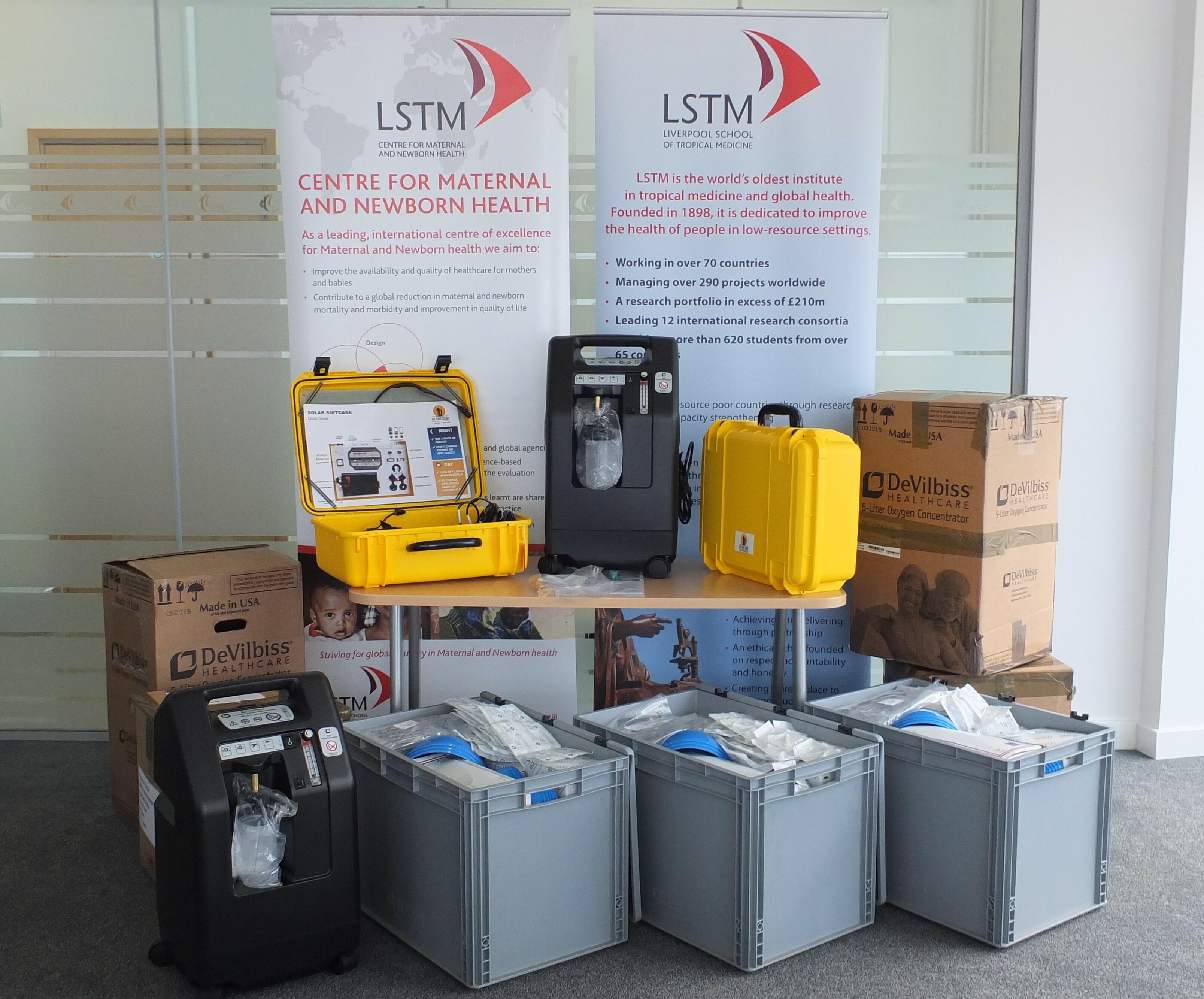
Earlier this year LSTM’s Centre for Maternal and Newborn Health (CMNH) cycled 4,247 miles to raise funds for urgently needed medical equipment for maternal health facilities in Sierra Leone which have been affected by the Ebola outbreak.
Opened by Liverpool Mayor, Joe Anderson, the challenge saw staff and students from throughout LSTM using exercise bikes in CTID, the Wolfson Building and the University Sports and Fitness Centre to cycle the distance between Liverpool and Freetown in Sierra Leone. The aim was to raise £5,000 to buy essential equipment for the George Brook Community Health Centre in Freetown, and the maternity units at Makeni Regional Hospital and the Kailahun Government Hospital, where CMNH have been working as part of their highly successful Making it Happen Programme.
By exceeding their target and raising £7,588.34, extra equipment could be bought and is now being prepared for shipping to Sierra Leone. Each of the facilities will receive a variety of life saving equipment including delivery and resuscitation kits. The two hospitals will also receive oxygen concentrators to help newborns who have difficulty breathing at birth, as well as a “solar powered suitcase” which can be used to generate light for delivery rooms when power outages occur.
The current outbreak of Ebola has impacted heavily on health services in Sierra Leone, which was already estimated to have the highest maternal mortality rate at 1,100 per 100,000 live births before the Ebola Epidemic. There is emerging evidence that even more maternal deaths have occurred, both as a result of the virus and due to the lack of availability of routine care, with the focus being on the fight against the virus in what is already a fragile health system.
Head of CMNH, Professor Nynke van den Broek, said: “On your Bike! was a fantastic effort from staff and students throughout LSTM and we well exceeded the target set due to the efforts of everyone taking part. CMNH’s mission is to improve the availability and quality of healthcare for mothers and babies in low and middle income countries. We have a very dedicated team based in Freetown, and have been working in Sierra Leone since 2009, supporting the Ministry of Health to build the capacity of its health care workers. Ebola has impacted our work, but all of us were determined to do whatever we could to continue to support mothers and babies in the country.”